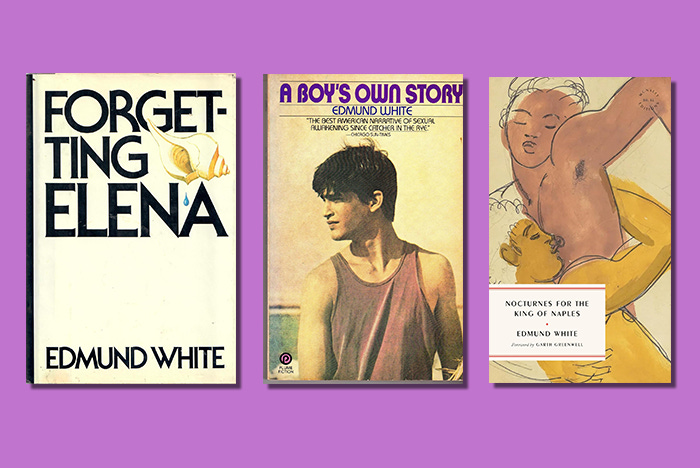Rec Letter: Edmund White (1940–2025)
A tribute—and reading list—from the editors of The Yale Review
In Rec Letter, you’ll find recommendations from our editors—offered as occasional tributes, informal prompts, or general enthusiasms.
We hadn’t planned this post for Back Matter this week, but we’re pausing to honor the life and work of Edmund White, who died on Tuesday at the age of eighty-five. One of the most influential gay writers of the twentieth century, White helped define and elevate queer literature in America with his candid, witty, explicit, and deeply intelligent explorations of sex, identity, and desire.
Yesterday, we published a moving remembrance of White by novelist and memoirist Yiyun Li. Her tribute captures the joy, irreverence, and deep companionship that defined their years-long friendship.
Between 1993 and 2012, Edmund White contributed to The Yale Review five times—writing essays on Jean Genet, Jean Cocteau, and Oscar Wilde; a review of composer Ned Rorem (with a zinger of an opening line); and a short story. Naturally, we recommend revisiting those. But White’s oeuvre is vast, and we wanted to offer a few entry points into his work—for readers discovering him for the first time, or returning in appreciation.
Here are six places to begin:
1. Forgetting Elena (1973)
White’s first novel is a satire of gay life on Fire Island, written in the style of Japanese court ladies Sei Shōnagon and Murasaki Shikibu. As White said in an interview with Damon Galgut for Lit Hub, the novel’s protagonist is “an amnesiac hoping to convince others he remembers everyone and everything, but fakes it by playing off the social cues they send.” And it is one of TYR Editor-in-Chief Meghan O’Rourke’s favorite books.
2. Nocturnes for the King of Naples (1978)
This short, lyrical novel is perhaps White’s most enigmatic and poetic—more explicitly spiritual, even theological, than his later work. It was recently republished by McNally Editions with a foreword from TYR contributor Garth Greenwell.
3. A Boy’s Own Story (1982)
Probably White’s most widely read novel, and for good reason. This semi-autobiographical Bildungsroman helped usher queer fiction into the literary mainstream. It’s the first in a trilogy, followed by The Beautiful Room Is Empty (1988) and The Farewell Symphony (1997).
4. The Flâneur: A Stroll Through the Paradoxes of Paris (2001)
A sensuous, idiosyncratic guide to the city White called home for many years. TYR recommends packing it in case you find yourself, say, on a week-long fling with a fashion photographer in Paris—a scenario White would have approved of, and almost certainly described.
5. The Humble Lover (2023)
White’s last published novel is a meditation on unrequited passion—funny but achingly sincere. A wonderful choice for anyone who has ever experienced the sweaty heights of bliss and the clammy pits of abjection after falling hopelessly in love with a beautiful ballet dancer.
6. His interview in BUTT Magazine (August 16, 2006)
Conducted by Gert Jonkers, this conversation captures White at his most obscene, charming, and unbuttoned. A fitting farewell: unrepentant and utterly alive.
Thank you, Edmund White, for your candor and your art. May the angels treat you right. We’ll keep reading.
—Samuel Ernest, Assistant Editor
Have a favorite book by Edmund White? Tell us in the comments below. Or, if you’re just getting started, let us know what’s first on your list.






"States of Desire"..series of snapshots of gay life in various parts of the US in the late 70s. Sharp, witty apercus, chatty, charming.
Many years ago, I followed Ed’s “Flaneur” advice in Paris “to the letter.” And I believe I had the greatest trip to Paris that anyone has ever undertaken. From there, I read his interview in BUTT, a zine sadly missed. Thus, I began with what people think are his minor or whimsical works, and then got to know him in our San Francisco coterie, loved him, and FINALLY read his major works. I’m glad I did it that way. What a lovely generous loving friend and inspiration.